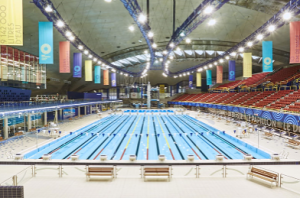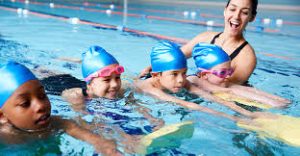Welcome to the annual insight into the state of Quebec aquatics, 2024 edition.
Similar to past editions, we will explore what’s happening with staffing, with swimmers, with drownings, with pools, and more. Let’s dive right in…
Staffing
Staffing in aquatics has been a primary concern and a disruptor the last few years . When the pandemic hit, the already-low staffing numbers in aquatics were compounded and the problem got significantly worse. With most pools shut down for months at a time in 2020 and 2021, fewer lifeguard certification courses were offered and completed, resulted in a depleted workforce. This resulted in reduced pool operating hours, less programming available for families, while simultaneously driving up wages.
Fortunately, the government stepped in in 2022 and announced compensation for the aquatics industry to subsidize lifeguard courses to encourage more people to become lifeguards to replenish the industry. While an important step, these measures are projected to take 4-5 years to fully feel the effects, and to replenish the industry. In the meantime, aquatic providers are seeing their staffing situations gradually improve and eventually stabilize, though is there still a lot of work to be done.
Additionally, turnover remains a concern for aquatic managers, as aquatics staff are staying at their pools for less time compared to pre-pandemic.
MIS estimates at its peak in late 2021 / early 2022, the staffing shortage resulted in pools operating at 55-60% of their pre-pandemic capacities. Today, those numbers are approaching 75-85%. A significant improvement, but still a ways to go. At least the industry is trending in the right direction.
Swimmers
One of the major effects of the pandemic and its effect on aquatics is that fewer children (and people in general) took swimming lessons, or had access to aquatics programs. As a result, we saw fewer children learning to swim at young ages, thus more children growing up with weak or non-existent swimming skills.
Whereas in the past, children were becoming fully capable and confident swimmers generally by age 4 or 5, today we are seeing more children older than 5 years old who are only starting their beginner swimming lessons. This trend has also translated to swim team, where swimmers who are qualifying for competitive swimming generally have weaker skills than the previous generation.
Unfortunately, this trend will continue to affect the generation of children who were 2-4 years old during the pandemic, as their swimming abilities are behind those of prior and later generations. In the meantime, it remains essential that all parents get their kids started in swim lessons as young as possible.
Pools
Staffing aside, the aquatics facilities themselves remain relatively status quo. One trend we are seeing more of, again as a result of the pandemic, is that many pools are simultaneously undergoing major renovations or maintenance. This is likely due to postponed work that was initially planned during the pandemic.
Unfortunately, individual and non-associated pools do not coordinate with each other, so it’s been seen on occasion neighboring pools close simultaneously or have overlapping closures. This has a profound effect in the local community, as access to aquatics programming suddenly becomes out of reach or severely limited for local families.
Figures from the Quebec lifesaving society drowning tracker.
Drownings
As of the date of the writing of this article, drownings are positively down (way down) in Quebec compared to previous years. As one of the provinces with the most access to public waterways (lakes, rivers, beaches etc) as well as a disproportionately high number of residential swimming pools compared to the rest of Canada, drownings and water-related accidents are typically the highest in Canada.
As of September 19, there 50 drownings in Quebec this year, compared with 68 this time last year. This may seem like an outrageously high number, since every drowning is preventable, but the downwards trend is encouraging.
Final Thoughts
Generally, the aquatics industry in Quebec is trending in a positive direction. Staffing levels and programming are improving each year. There is still plenty of concern, especially regarding drownings and children’s swimming abilities. Swim safely everyone!






